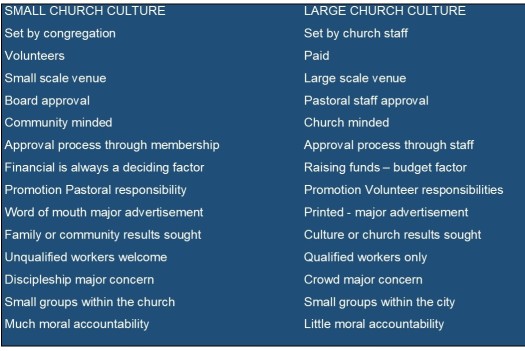A sabbatical is needed, a sabbatical is refreshing, and a sabbatical is required for those in leadership. Every small church pastor should experience the joy and rest of a sabbatical.
We dishonor the Sabbath Day instead of “honor the Sabbath Day to keep it holy.”
In Israel, the Sabbath, from Friday evening through Saturday evening, is a national observance, except for taxis and emergency vehicles on the streets are clear, the shops and businesses closed. A family meal including scriptures, prayer, and familial blessings begins the Sabbath. No TV, radio, tablets or phones are used by family members but prayer, Bible reading, physical and mental rest and family time emphasized. This happens every Friday evening and all day Saturday.
In America, we use Sunday, as our Sabbath but filled with travel, ball games, church activities and a little relaxation, little mental rest, little recoil from activity, and little family time. For the Pastor, Sunday is our busiest day. For bi-vocational Pastors, Sunday filled with church responsibilities, Monday through Friday is time spent on the job and Saturday is mowing, cleaning, visiting, studying, hospital calls, family activities and much, much more.
The Feast of the Sabbatical year, in the Old Testament, celebrated every seven years as a Sabbath for the land. (Leviticus 25:2). According to Exodus 23:11 and Leviticus 25:4 the surplus of the six previous years provided for the seventh year. It was a festival filled with food, celebration, and cessation of all field labour. All Hebrew servants are released and the public reading of the law was the highlight of the festivities (Deuteronomy 31:10-13).
Drawing from these parallels the small church pastor should deem a sabbatical necessary every seven years, the local church should set funds aside for six years to pay for the Pastor’s sabbatical including his regular salary. The Pastor’s lodging, food, transportation and other expenses paid for by the church. There should be no work; no conference, no camp meeting, no preaching, no pastoral responsibilities.
Positioning: take a Bible, a writing pad, a devotional and a couple books.
Place: secluded and removed from the hustle and bustle of the city, a private and quiet area, with a scenic area to walk, meditate and pray.
Pastor: should not take the week, seven complete days, at least, to work on a sermon series but a time of evaluation, reflection, refreshing and rest. Remember this is not a vacation; plan a vacation with the family at another time.
Sabbath is a time God chooses to slow us down and bring us into spiritual and mental alignment with Him. God chose a six-day work week and a Sabbath as a time to rest, reflect and refresh. The Sabbath reminds us to “slow down,” admit our breakneck speed of doing God’s work by ourselves. A Sabbath is a time of personal evaluation of our limitations, fragility and our ability to hold everything in.
A friend of mine went on a seven-day sabbatical, he takes one yearly, to a mountain hike with several other men. The guide purposely plans every stop as a spiritual quest into the Pastor’s heart, mind, and life, regarding purity, manliness, heart contact with God, devotion, fatherhood, and husbandry.
A small church Pastor should outline the scriptures to present to the local church, expressing the importance of a Pastoral Sabbatical. Meet with the board about the payment of lodging, food, and transportation while explaining this is not a vacation. Practice a “personal revival.” An alone time with God, such as Moses’ three years in the desert, David’s years in the hills watching sheep, Jesus often went alone into the mountains to pray, and Paul was three years in the desert.
Pick a place for lodging having a beautiful view, private paths to walk, and enough food for the week. This is not a time for shopping, boating or mountain climbing but a few hikes, a little fishing or a picnic may be observed. Remember, the Sabbatical is to hear the voice of God, to be spiritually rejuvenating and to rest your mind from the exhaustion of stress.
Bless you and be sure and tell me about it when you get back.


